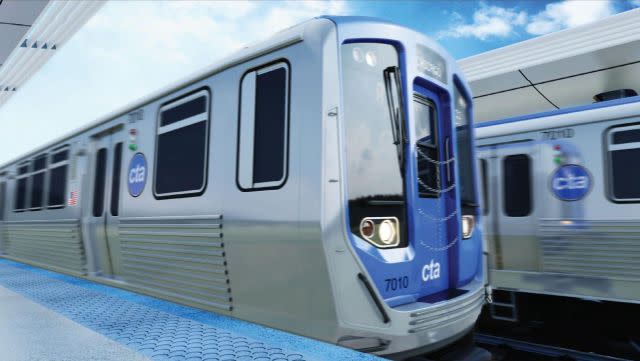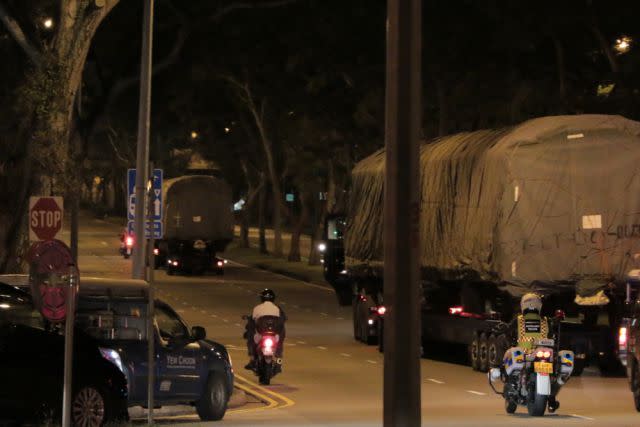The Chinese company making Boston and Chicago’s new subway cars has big problems in Singapore

Chinese train manufacturer CSR Sifang has run into serious quality problems in a major project in Singapore. The city-state’s transportation authority said cracks have appeared in dozens of train cars made by CSR Sifang, where the cars attach to the “bogie” or undercarriage.
Twenty six out of 35 railcars made by a joint venture between CSR Sifang and Kawasaki Heavy Industries have defects, Singapore’s SMRT Trains said Tuesday (July 5).
The Singapore government’s announcement comes after Hong Kong news agency FactWire reported that trains were being sent back from Singapore to CSR Sifang’s factory in Qingdao, China, for replacement. The crowd-funded news organization tracked cars, shrouded in green wrapping, from Singapore’s Bishan Depot to a Singapore port to Qingdao.

CSR-made trains have experienced a series of problems in Singapore, from exploding batteries to cracked passenger windows, FactWire reported, citing sources in Singapore and mainland China. Kawasaki was responsible for overseeing and designing the trains, and making the train bogies, while CSR Sifang, part of China’s state-owned train giant CRRC, was responsible for the cars. FactWire reports:
The mainland railway industry source stated that quality issues with the Chinese-made C151A trains began to worsen in 2013. They said cracks were found in structural components, including the sub-floor – a compartment under the passenger floor holding the equipment box and electrical wires – and bolster function parts connecting the car body to the bogie, the latter having the most serious problems. “It’s a structural problem,” said the source. “The bolster function balances the train’s weight and swing range, [therefore] cracks are dynamic, [they] can spread to the train car body with the bolster function, so the entire train car must be replaced.”
A receptionist who answered the phone at CRRC’s head office in Beijing told Quartz that the company was made aware of of the issue last year, and related departments have been established to deal with the problem. “No time limit is set and we will get back to you as soon as there is any investigation result,” she said. CSR Sifang declined to provide any further details of the issue.
The Chinese companies have been aggressively pursuing contracts in the US and other markets outside China, and winning huge deals in part because of low bids.
In March, the Chicago Transit Board awarded CSR Sifang’s US joint venture a contract to make its “next generation of metro cars,” as Mayor Rahm Emanual said at the time. CSR Sifang will initially make 400 cars for Chicago for $632 million, but could supply 846 overall, for a total value of $1.3 billion.
The Chinese company was the lowest bidder, beating competitor Bombardier by $226 million, Railway Age reported. As part of the contract it will build a factory on the south side of Chicago to assemble the cars, which will employ 170 people.
In October 2014, the Massachusetts Bay Transportation Authority awarded CRRC a $567 million contract to build 284 subway cars for Boston. The project included building a $95 million factory in East Springfield, Mass. The bid was 50% cheaper than competitor Bombardier’s bid, the Boston Globe reported.
Neither Boston nor Chicago have received any train cars yet from the contracts.

Sign up for the Quartz Daily Brief, our free daily newsletter with the world’s most important and interesting news.
More stories from Quartz:


